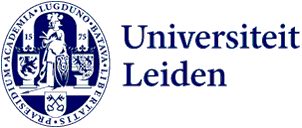
Zeineb Romdhane: Student and Minister for New Democracy
A shadow cabinet has just been formed. This one consists of students from all the Dutch universities. They will be keeping politicians on their toes in the coming year, and want to show that progress cannot be made without academic research and teaching. Master’s student Zeineb Romdhane is Minister for New Democracy.
Zeineb Romdhane has been honing her pitch: ‘As a minister the point I want to raise is that national politics should be more of a reflection of society than is currently the case. My ambition is for all citizens – young people and other underrepresented groups in the Netherlands too – to have their voices heard and get more involved in politics. We need to move towards inclusive citizenship and inclusive politics, and a better understanding of what these mean.’

Open to interpretation
The student cabinet originates from the Association of Universities in the Netherlands (VSNU) (see below for more details), from its Communication and Public Affairs section to be precise, where the directors of communications from the Dutch universities are represented. The directors may have initiated the cabinet, but it is now up to the cabinet itself and its prime minister – from the University of Twente – to come up with ideas and activities to make sure their vision and ideals reach the ears of and inspire politicians in The Hague.
‘I spoke to Ms Merkx, the director of communications at Leiden,’ says Zeineb. ‘She emphasised how all the posts are open to interpretation.’ She goes on to explain how she heard about the initiative by chance and asked whether she might be considered for the post of minister in Leiden. No sooner said than done.
Political decisions should take account of the diversity of our society
Zeineb: ‘Our current structures don’t reflect society. Take ministries that work for the Netherlands, but don’t have the entire Dutch population in mind. The culture of our current political system is perceived as obstructive by certain groups within the Dutch populace. Underrepresented groups consequently feel that it’s not about them, which means they don’t feel involved in politics and don’t have a say.’
‘All identities should feel represented and be invited to contribute to society.’
‘If we want inclusive citizenship, we need above all to ensure that political decisions take account of the diversity in our society and thus foster inclusion. We have to ensure that inclusion is not an afterthought but is embedded in the foundations of our democracy.
‘More research is needed to learn about the experiences and political perspectives of underrepresented groups within the Dutch population. Research is opening new horizons on how to involve a more diverse group of citizens in future political meetings. That’s how you make it relevant to everyone, and how you give your citizens the feeling that their opinion will be respected. For me it’s about citizens feeling heard and being able to practise citizenship. All identities should feel represented and be invited contribute to society.’
|
University |
Ministry |
|---|---|
|
Groningen |
Sustainable energy (& housing) |
|
Tilburg |
Job satisfaction |
|
Delft |
The new delta works |
|
Rotterdam |
An inclusive, sustainable economy |
|
Maastricht |
European integration |
|
Open universiteit |
Lifelong learning |
|
Twente |
General affairs (prime minister) |
|
Wageningen |
Agriculture, environment, food, energy |
|
Leiden |
The new democracy |
|
Nijmegen |
Peace and justice |
|
Utrecht |
Healthy living/ life sciences. From curative to preventive care |
|
UvA |
Privacy and security |
|
VU |
Sport and exercise |
|
Eindhoven |
Innovation |

Not such bad timing
Isn’t it bad timing, forming the new student cabinet when the political parties have already written their manifestos? Not at all, says Zeineb. ‘Young people should be able to influence the government formation discussions and the way the different viewpoints are given shape.’ The youth cabinet is itself still in the formation process. They have just held their first meeting. ‘That was mainly to get know one another,’ says Zeineb. ‘We agreed to meet weekly and that we will begin by defining our goals. Then we can look at how we can use our influence The main objective is and always will be to emphasise the importance of research and teaching in all areas of policy.’
Right person, right place
The New Democracy post is a good fit for Zeineb. This talented student has two bachelor’s degrees – Political Science and International Studies – that she studied for simultaneously. She did a minor in Global Migration Studies at the university. She didn’t find her studies too hard: ‘That’s because I find everything really interesting and really enjoy studying.’ She even had time for internships and to set up the MENA student association with a few others. She is now doing the master’s programme in Middle Eastern Studies, a broad programme with different specialisations. Zeineb has decided to specialise in politics and has chosen to study Persian. ‘I learnt Arabic at home,’ she explains. The student cabinet will take up a lot of time, but Zeineb has already proven that she can do several things at once.
Why a student cabinet?
During the general elections the VSNU wants to show politicians and the public how important research and teaching are to society, both now and in the long term. During the government formation process and as the agreements reached are honoured, it must be clear that research and teaching are not expenses but investments that will lead to sustainable solutions for the country. One positive way draw attention to this is to form a student cabinet, with a minister from each of the Dutch universities. The cabinet draws up its own agenda for the future, aided by researchers from the students’ own universities.
Text: Corine Hendriks
Portrait photo: Melissa Schriek
Mail the editor
